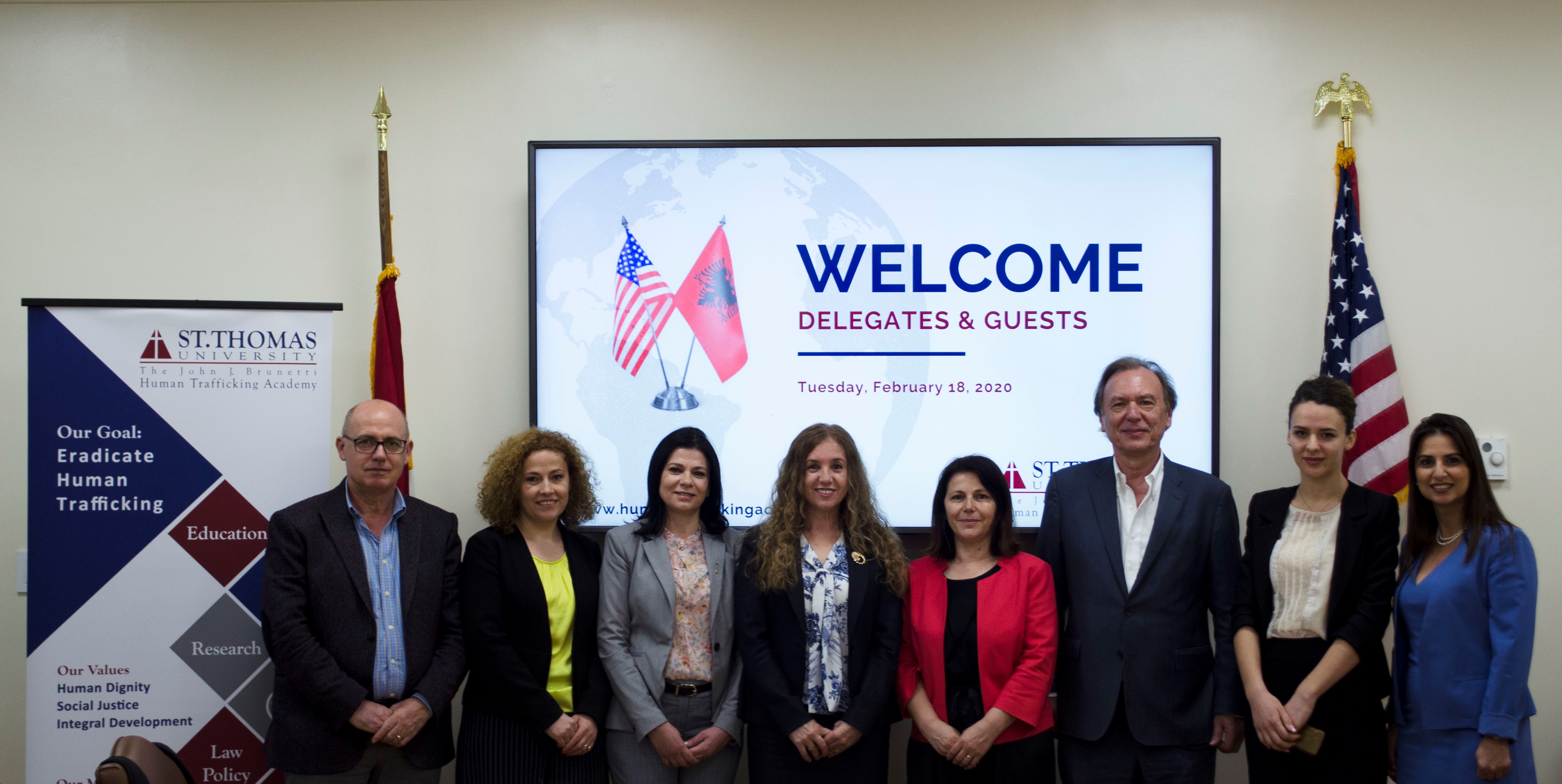
On February 18, a delegation of distinguished government officials and professionals from Albania traveled to the Academy for a roundtable entitled Public-Private Partnerships in Combatting Human Trafficking: The Role of Academia. The delegation visited the United States as part of United States Department of State’s International Visitor Leadership Program. Their St. Thomas visit is made possible through the cooperation with Global Ties Miami, a non-profit organization that works to facilitate international exchange programs.
The Delegation was welcomed by the Academy’s Founder and Director, Prof. Dr. Roza Pati, who is a native of Albania and former Member of Parliament and Cabinet Member serving as the Secretary of State for Youth and Women of Albania. Dr. Pati highlighted St. Thomas Law’s human rights program as the pioneer academic institution in South Florida to address human trafficking. She also emphasized the Academy’s work in fostering public-private partnerships in combatting human trafficking and in promoting the integral human development as the best way to prevent modern day slavery.
Prof. Dr. Siegfried Wiessner, Director of the Graduate Program in Intercultural Human Rights, introduced participants to the New Haven School of Jurisprudence as a sound methodology and invaluable tool for developing solutions to human trafficking issues. Liza Smoker, Managing Director of the Academy, shared how the Academy’s strategic partnerships with private and public entities have impacted law and policy. Guest speaker Alicia Priovolos, the Assistant State Attorney and Director of the Human Trafficking Unit in the Office of the State Attorney Katherine Fernandez Rundle, presented on the many effective partnerships that the State Attorney developed with law enforcement, nonprofits, and academic institutions such as St. Thomas University to combat and prevent the crime in our community.
In attendance from Albania were Mr. Arian Çala, Executive Director, Tjeter Vizion; Ms. Suela Cani, Director, Albania’s National Reception Center for Victims of Trafficking; Ms. Mariana Muslia, Executive Director, Different & Equal; Ms. Brikena Puka, Executive Director, Vatra Centre; and Ms. Mimoza Qvra, Coordinator of Anti-Trafficking Sector, Albania’s Ministry of Interior. Also in attendance were students of the Graduate Program in Intercultural Human Rights hailing from Armenia, Kazakhstan, Nigeria, Pakistan, Peru, and Saudi Arabia.
The Delegates spoke of the significant work accomplished in response to human trafficking in Albania as a country of origin, transit, and destination. Prevention efforts included a multi-disciplinary working group and separate task force maintained by the government in order to develop and monitor anti-trafficking policies. In addition, several of the Delegates champion social services for both domestic and foreign victims of human trafficking.
Ms. Mimoza Qvra, Coordinator of Anti-Trafficking Sector in Albania’s Ministry of Interior, expressed an interest in continued collaboration with the Academy. “There is a tremendous amount of cooperation and multi-disciplinary partnerships in Albania that transcend political and religious lines. The Academy would be delighted to support Albania’s efforts against human trafficking in any way we can,” said Dr. Pati.
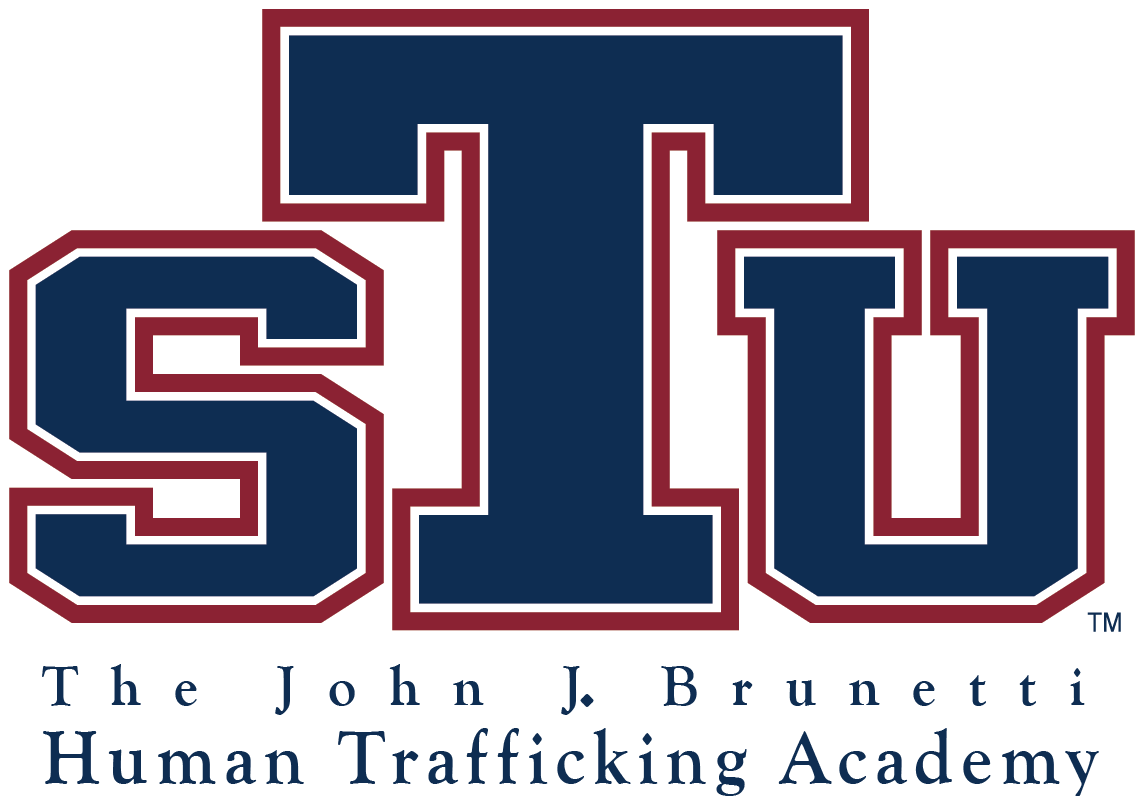



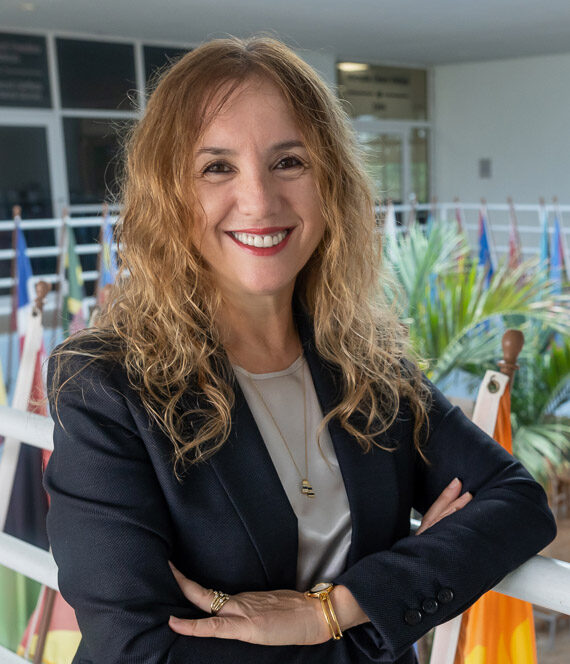 Prof. Dr. Roza Pati
Prof. Dr. Roza Pati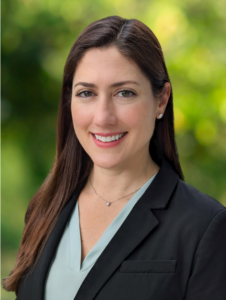

 Professor Brendan M. Conner
Professor Brendan M. Conner  Professor Linh K. Dai
Professor Linh K. Dai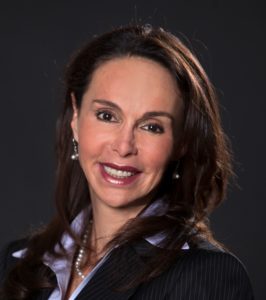
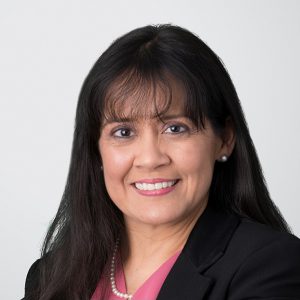

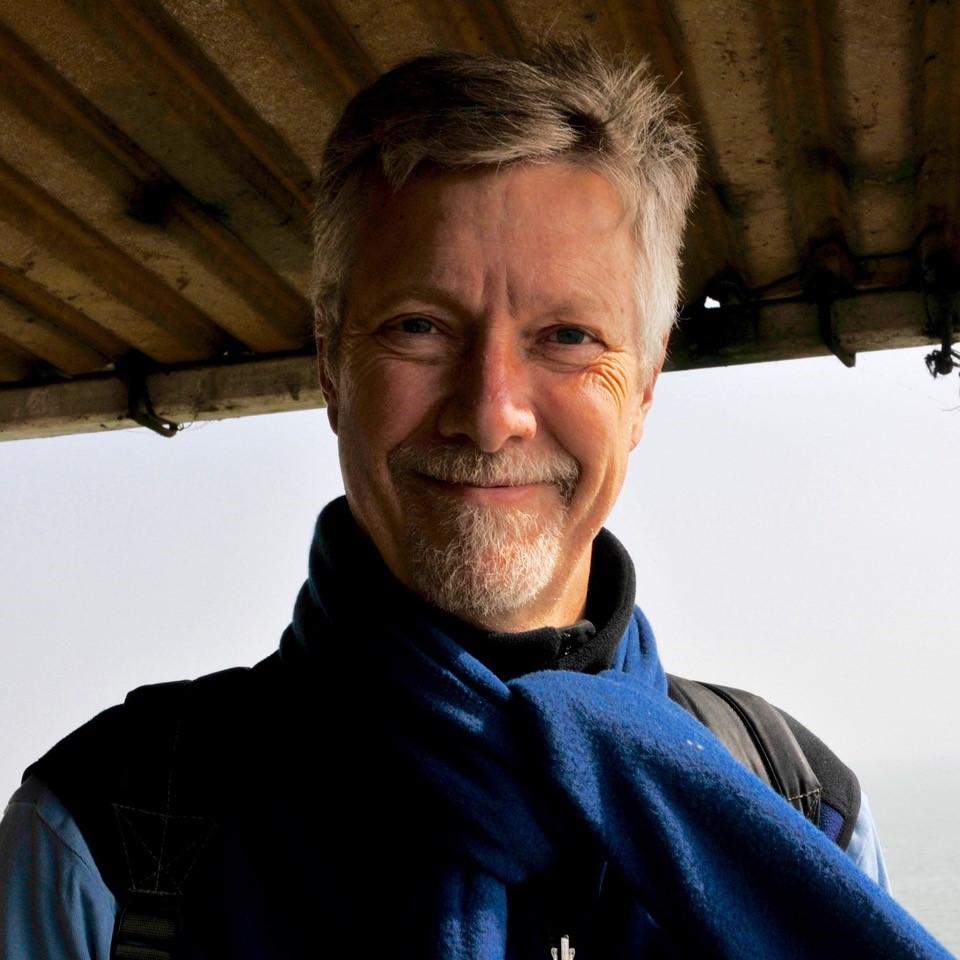
 The Honorable Bella Hounakey
The Honorable Bella Hounakey
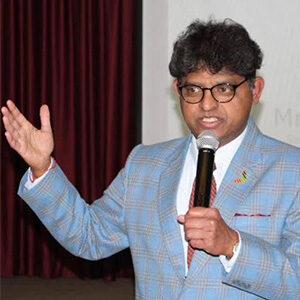 The Honorable Harold D’Souza
The Honorable Harold D’Souza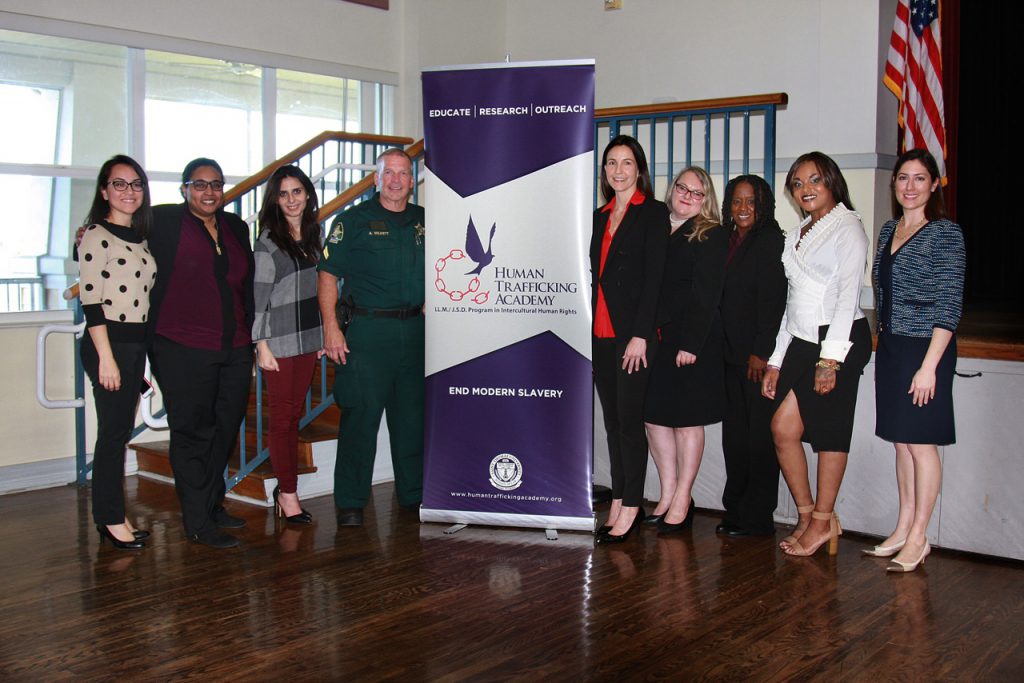
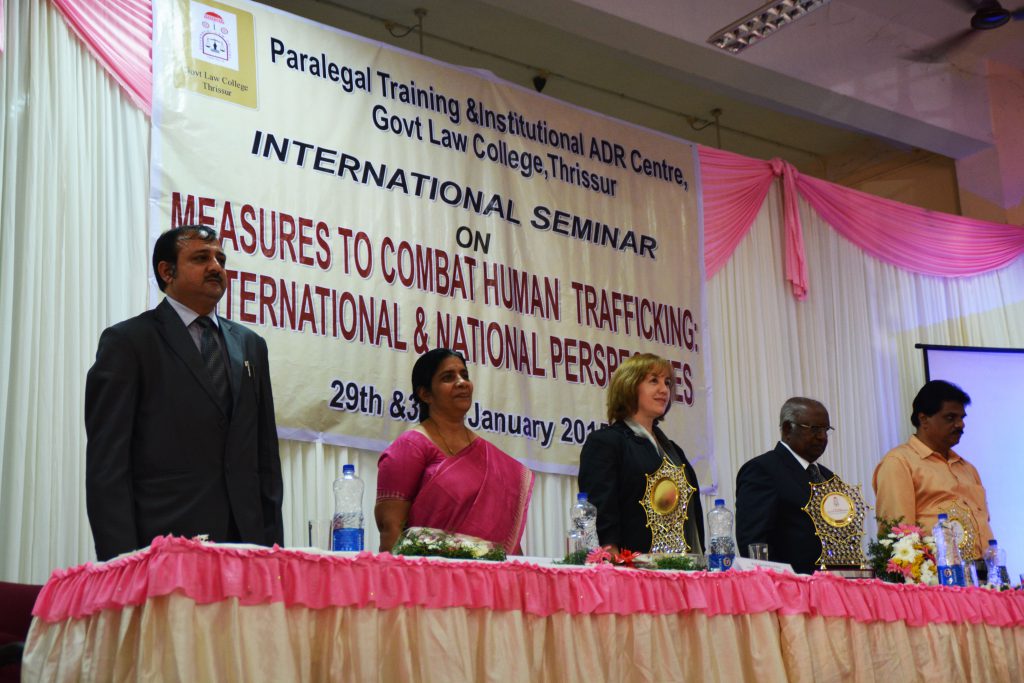
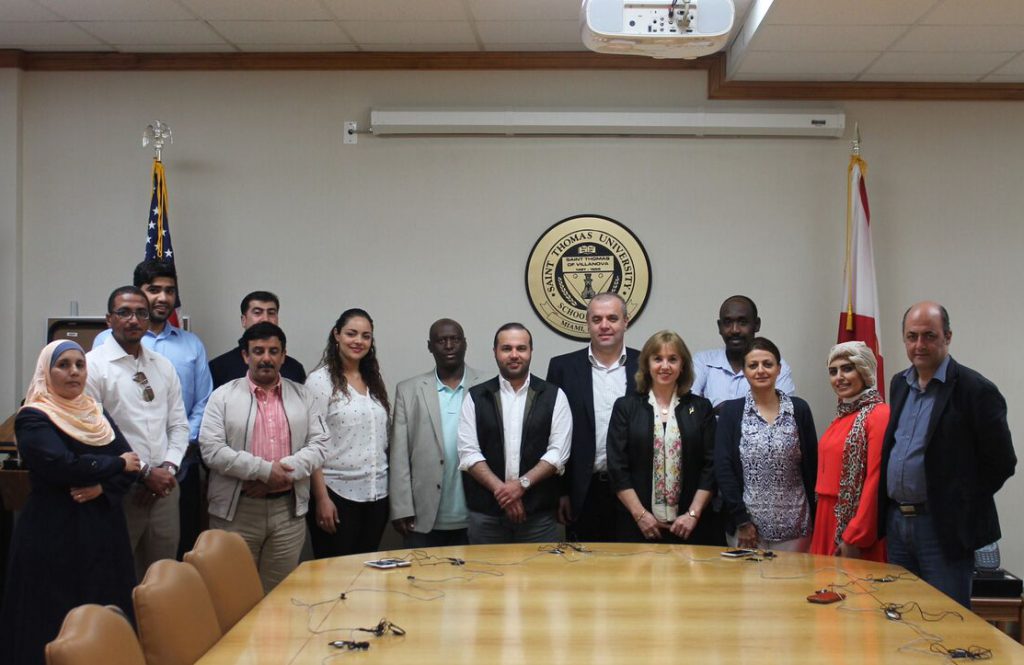
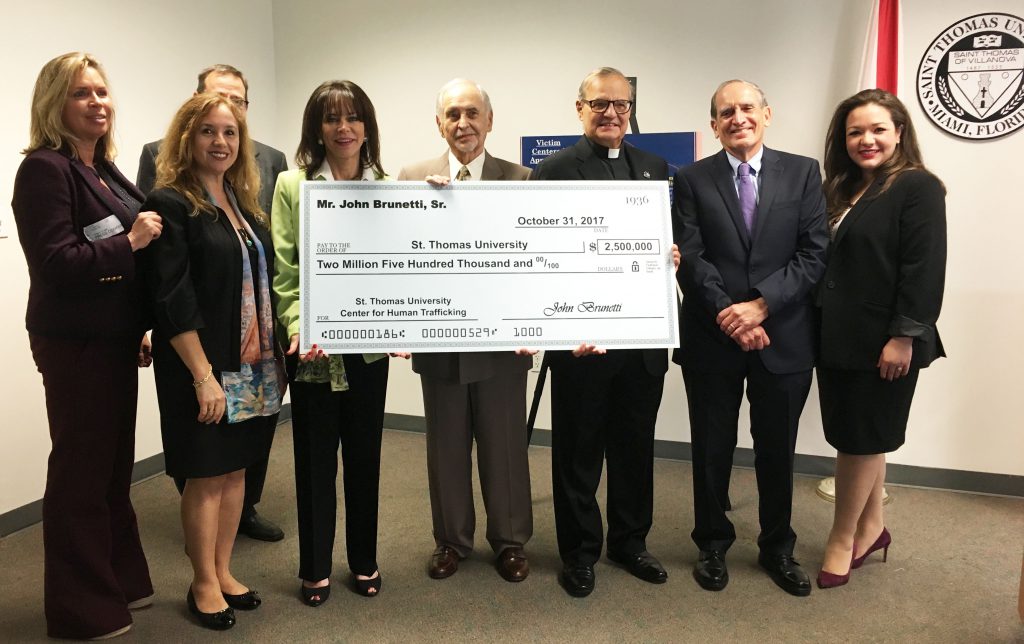
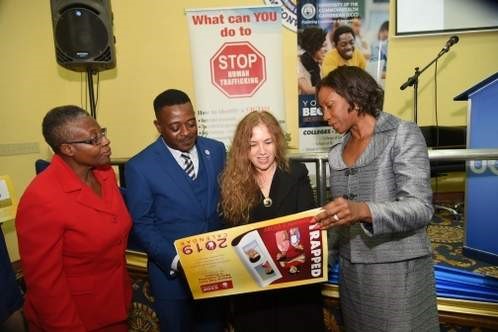

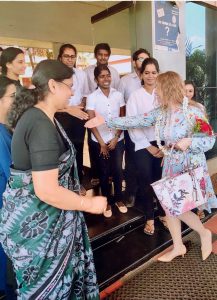
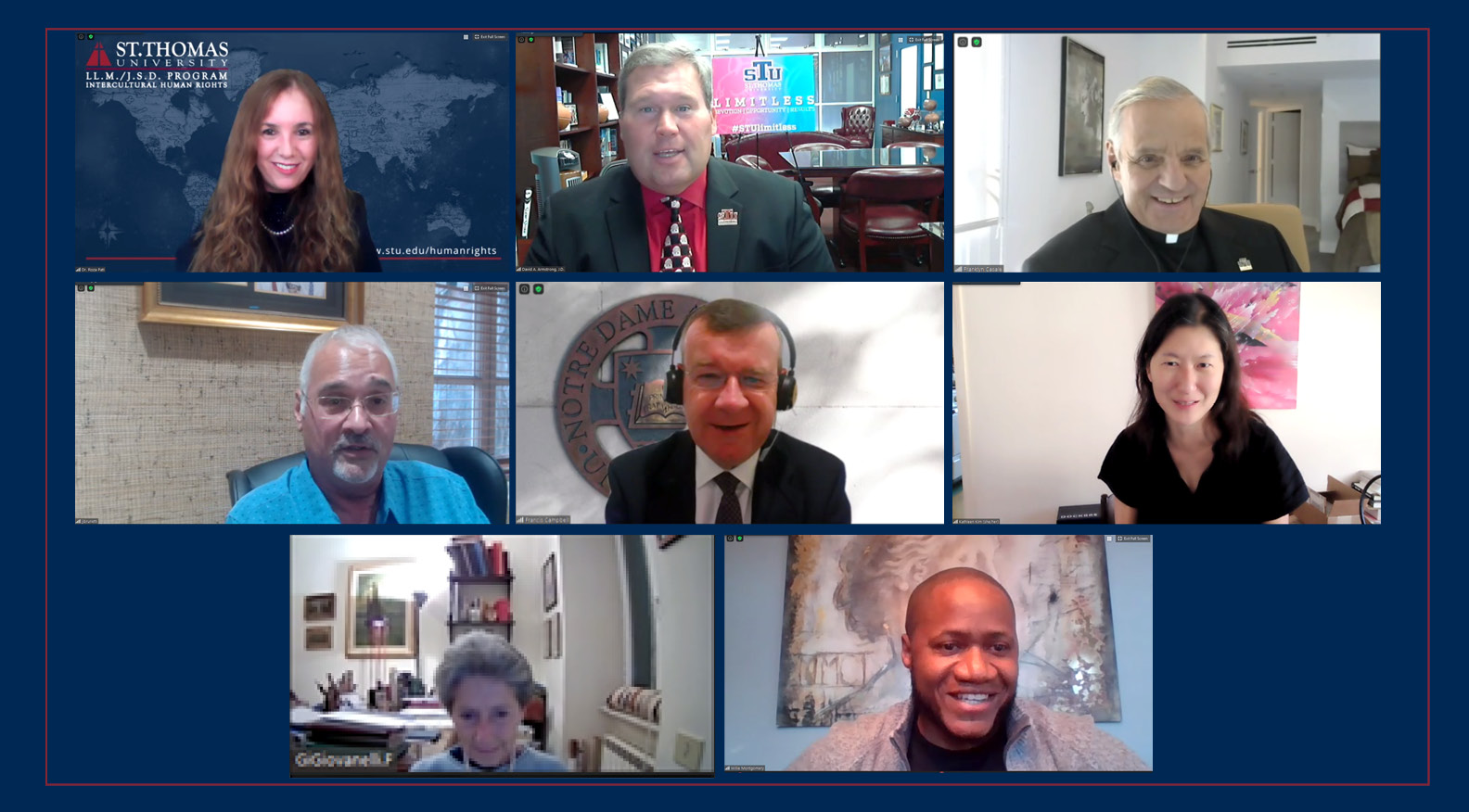
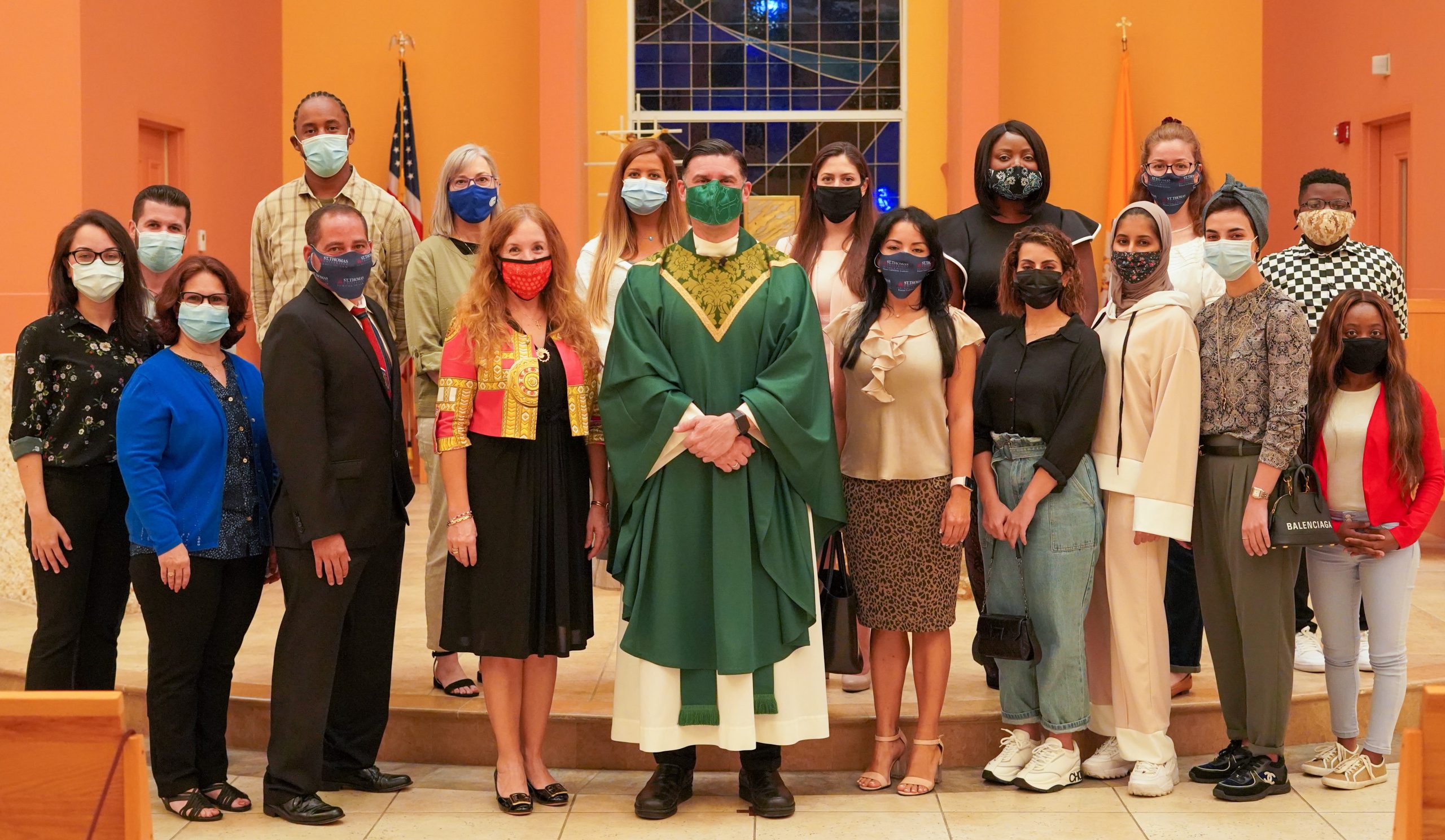
 Ramona D. Miller
Ramona D. Miller Detective Krysten Ridenour
Detective Krysten Ridenour
 The Honorable Amira D. Fox
The Honorable Amira D. Fox Juliana Diaz, LMHC
Juliana Diaz, LMHC Crystal Lee Hamilton
Crystal Lee Hamilton Erika Pineros, LMHC
Erika Pineros, LMHC M. Kazam Hashimi
M. Kazam Hashimi
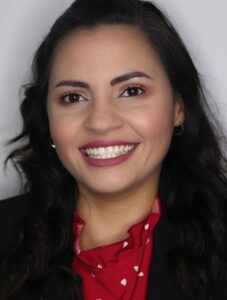 Maryem Reyes
Maryem Reyes
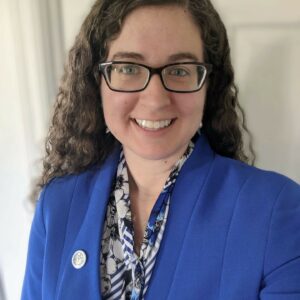 Jennifer Reyes Lay
Jennifer Reyes Lay Sloane Davidson
Sloane Davidson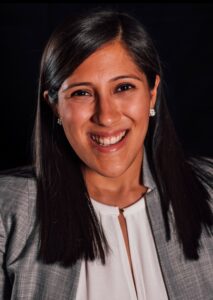
 Ana I. Vallejo, Esq.
Ana I. Vallejo, Esq.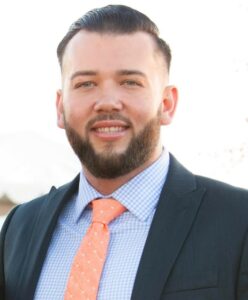 The Honorable Suamhirs Piraino-Guzman
The Honorable Suamhirs Piraino-Guzman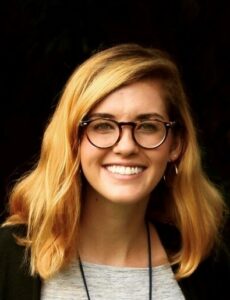 Caroline Chisholm
Caroline Chisholm Imelda Medina, MD, MPH
Imelda Medina, MD, MPH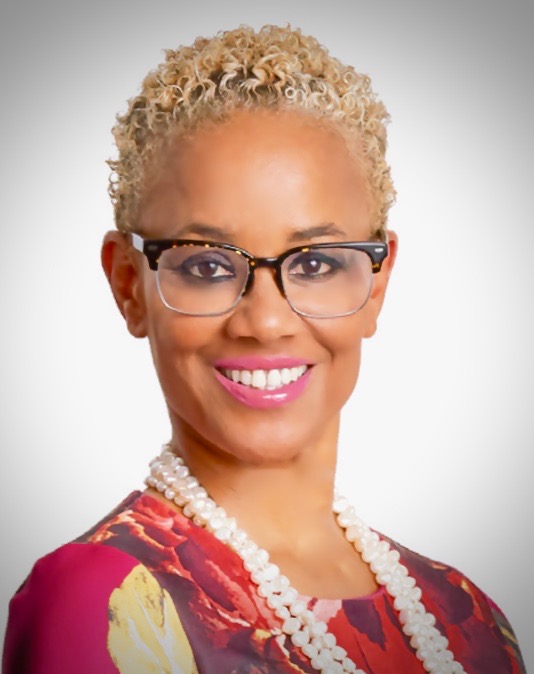
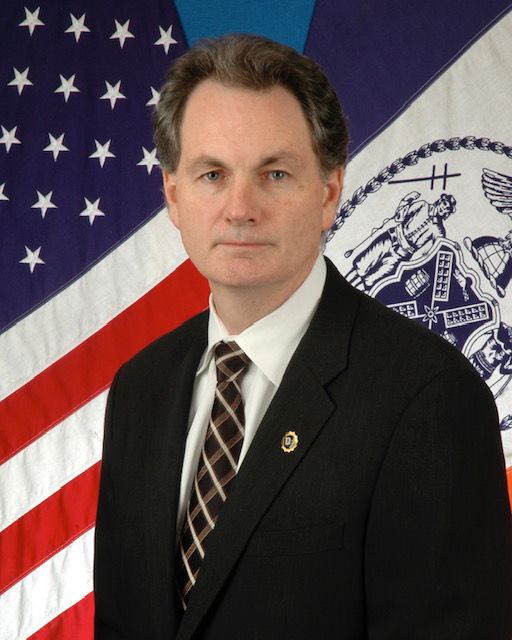
 Kutisha T. Ebron
Kutisha T. Ebron The Honorable Kwami Adoboe-Herrera
The Honorable Kwami Adoboe-Herrera Rebekah Charleston
Rebekah Charleston
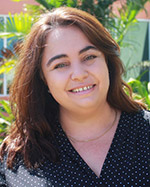 Maria Florencia Cornu Laport, Esq.
Maria Florencia Cornu Laport, Esq.
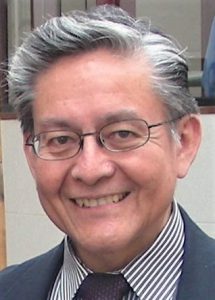




 Maria Vega
Maria Vega




 Gabriela DeBellis
Gabriela DeBellis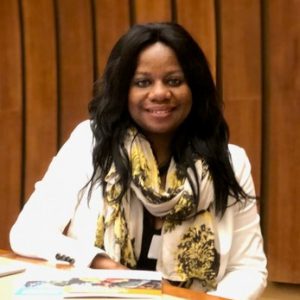 Lerina Bright
Lerina Bright

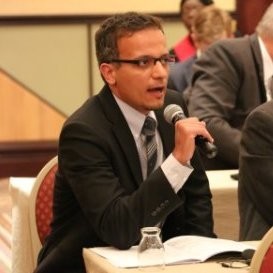
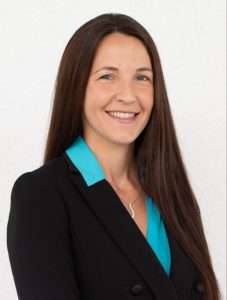
 Ronke Giwa Onafuwa
Ronke Giwa Onafuwa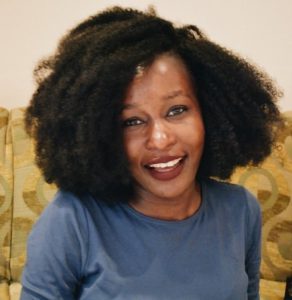

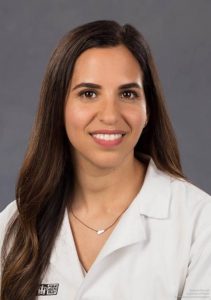


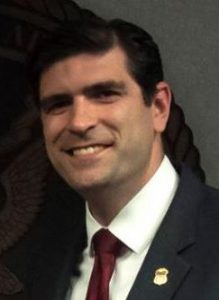

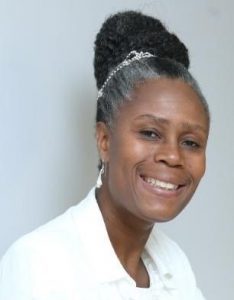 Myriam Mézadieu
Myriam Mézadieu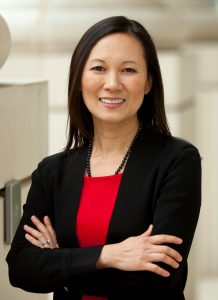 Thear Suzuki
Thear Suzuki Mary Anne Silvestri
Mary Anne Silvestri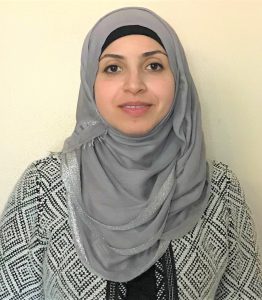
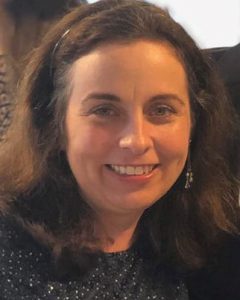
 Susan Patterson
Susan Patterson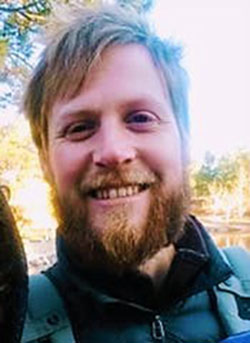 Jordan Bruxvoort
Jordan Bruxvoort